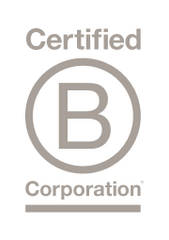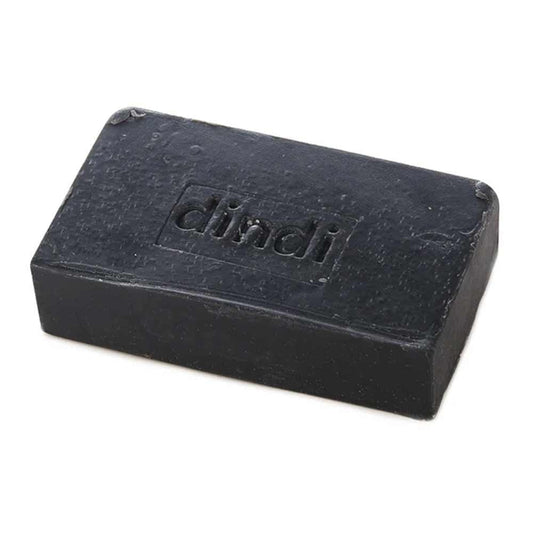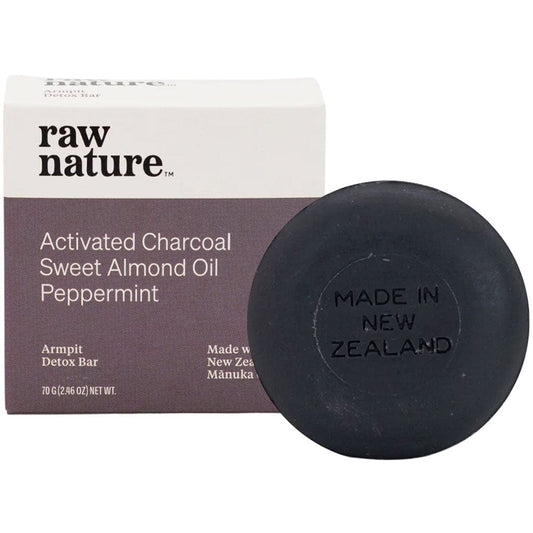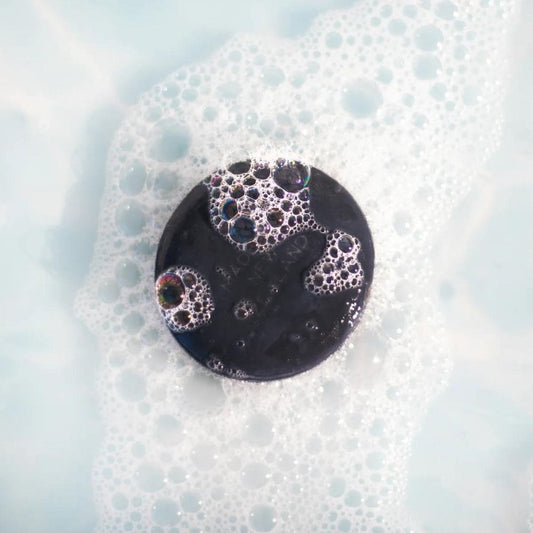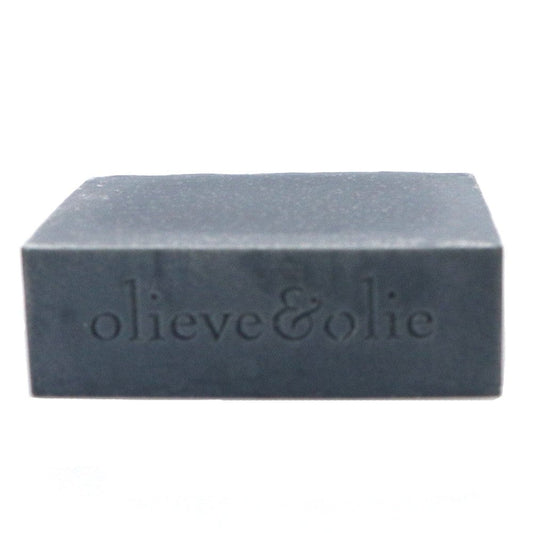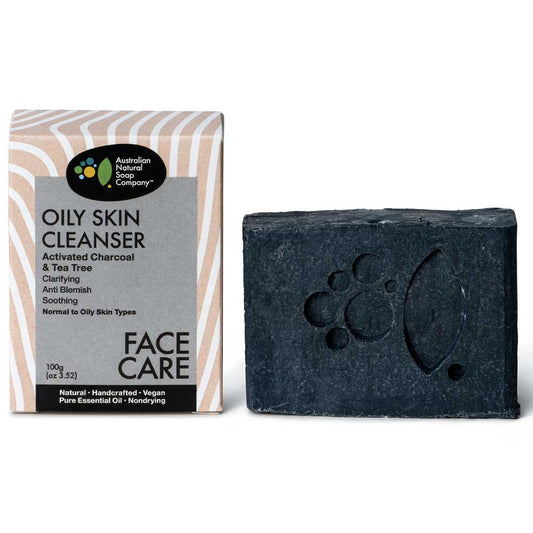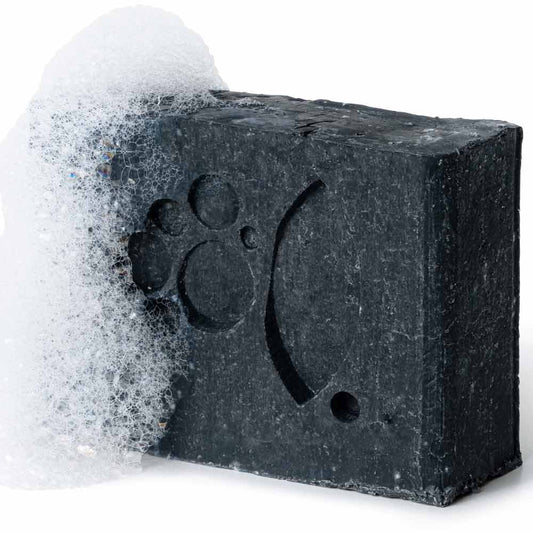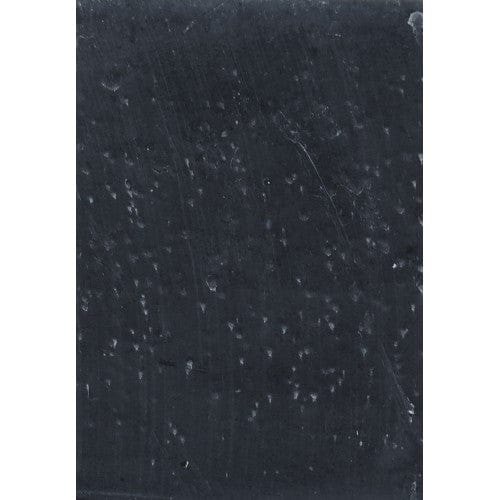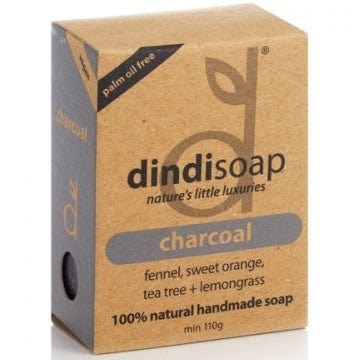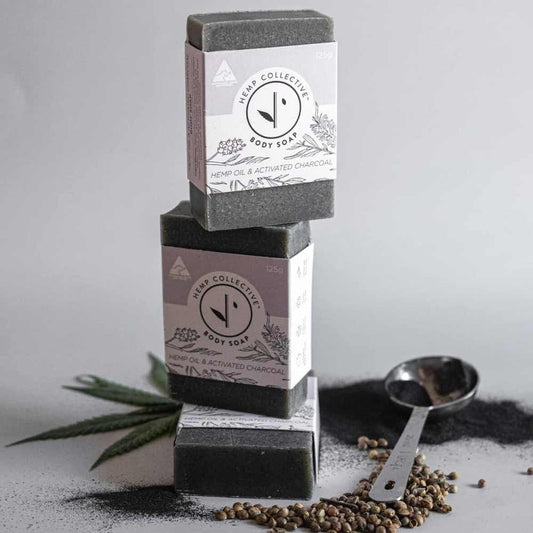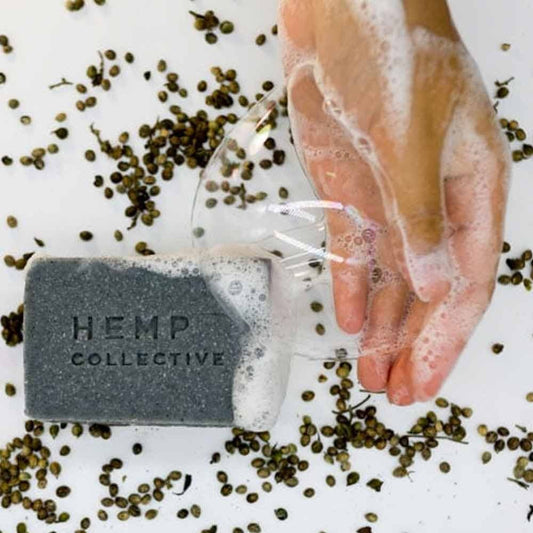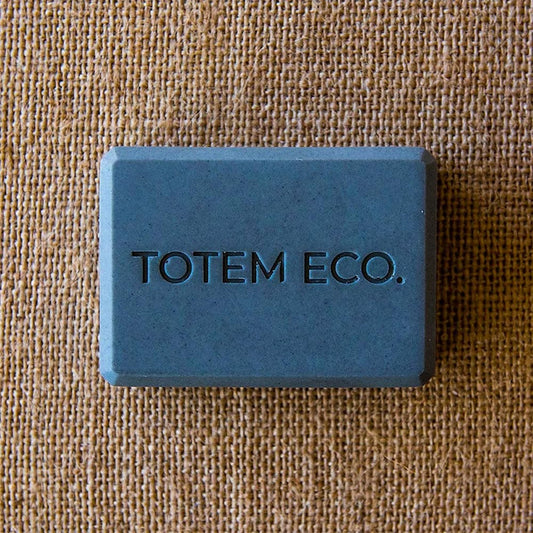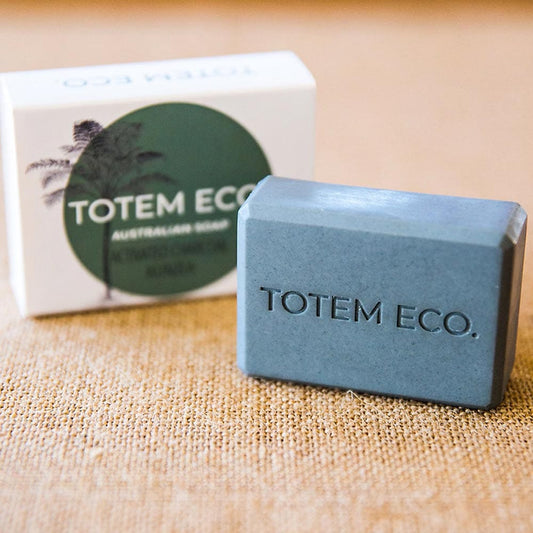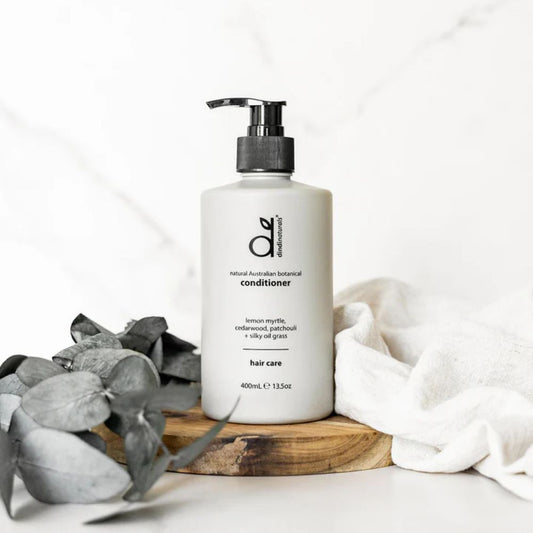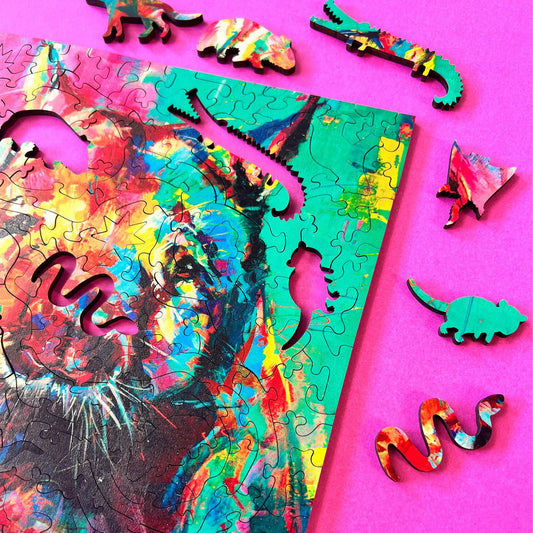
Charcoal soap is a popular choice for many looking to improve their skin's health and appearance, thanks to its ability to effectively cleanse, remove excess oils, exfoliate and detoxify. However, the answer to whether charcoal soap is good for your skin isn't straightforward. As with all products, not all soaps are created equal, so it's important to look at the quality and composition of the soap! In this blog post, I explain what to look out for in choosing a good charcoal soap that will be beneficial for your skin.
Firstly, let's understand what a charcoal soap is actually made from. At Biome, we have sold natural soaps for 20 years, including making our own very popular palm oil free cold-process soaps—so we know what makes a great soap!
What is charcoal soap made from?
Charcoal soap is typically made by incorporating fine activated charcoal powder into a soap base. Activated charcoal is made by carbonising organic materials—such as wood, coconut shells, bamboo, or coal—followed by an activation step. If interested, you can read more about that process towards the end.
The soap base itself can be made from vegetable oils such as coconut, palm oil, olive oil, or unfortunately, even petroleum oil!
Essential oils and other natural additives might also be included for scent and additional skincare benefits. Avoid any soaps with parfum or synthetic fragrance.
Dindi Naturals Charcoal Soap bar is super moisturising and nourishing as it is made from saponified olive oil, coconut oil, shea butter, sunflower oil, castor oil, and rice bran oil!
Is charcoal soap good for skin?
Good quality charcoal soap offers several benefits for the skin, making it a great addition to your skincare routine. Here’s a simple list of why:
1. Deep cleansing: Activated charcoal is known for its ability to deeply cleanse the skin by drawing out impurities and toxins from the pores, which helps to reduce acne and improve overall skin clarity.
2. Oil control: Charcoal absorbs excess oils on the skin, making it ideal for those with oily or combination skin types. This helps to prevent acne breakouts and leaves the skin feeling balanced and less greasy.
3. Exfoliation: Charcoal has a slightly gritty texture, which provides gentle exfoliation. This helps to remove dead skin cells and improve skin texture, promoting a smoother, more radiant complexion.
4. Detoxification: Due to its detoxifying properties, charcoal soap helps to remove environmental pollutants and toxins from the skin, which can contribute to skin aging and irritation.
5. Reduces pore size: Regular use of charcoal soap can reduce the visibility of pores by pulling out dirt and grime, leading to a smoother skin appearance.
6. Reduces odour-causing bacteria: Activated charcoal in charcoal soap absorbs bacteria and toxins, deprives bacteria of nutrients by absorbing oils and moisture, helps maintain a healthy skin pH, and deeply cleanses pores, making it highly effective in controlling body odour. I use it to cleanse under my arms to boost the effectiveness of my natural deodorant.
7. Soothes skin: High-quality charcoal soap often contains additional natural ingredients that soothe and nourish the skin, reducing inflammation and irritation.
8. Suitable for all skin types: While particularly beneficial for oily and acne-prone skin, good quality charcoal soap that is formulated with moisturising and soothing ingredients can also be suitable for dry and sensitive skin types.
Choosing a charcoal soap made with natural moisturising ingredients and free from harsh chemicals ensures that you and I can enjoy these good benefits without any adverse effects on our skin!
Charcoal detox armpit bar removes odour-causing bacteria and deodorant residue. "I use this under my arms particularly when I think it may be a sweaty day! Used in combo with my Biome deodorant paste, I never have BO any more." - Tracey
Any disadvantages of charcoal soap?
- Over-drying: Charcoal soap can strip away natural oils from the skin, potentially leading to dryness, especially for those with already dry or sensitive skin types.
- Messy: The black residue from charcoal soap can be messy, leaving stains on towels and bathroom surfaces that require extra cleaning.
- Potential irritation: For some individuals, the gritty texture of charcoal soap can be abrasive, and its detoxifying properties can be too intense, leading to skin irritation or reactions, particularly for sensitive skin.
What makes a good charcoal soap?
Quality of ingredients
The benefits of charcoal soap largely depend on the quality of the other ingredients used alongside charcoal. High-quality, natural ingredients can enhance the soap’s skin benefits, providing gentle cleansing and nourishment.
Buy charcoal soap from a trusted brand made in Australia or the country where you live.
No synthetic additives or petrochemicals
Choose a natural soap that is free from petrochemicals, synthetic fragrances, preservatives, and colours.
Petrochemicals and synthetic fragrances can irritate the skin, causing dryness and allergic reactions.
Soap manufacturing process
The method used to manufacture the soap can also affect its benefits. Cold process soaps retain the natural benefits of ingredients better than those made with high heat and harsh chemicals, which can degrade the beneficial properties of charcoal.
No palm oil
Palm oil, although a common ingredient in soap making due to its cost-effectiveness and lathering properties, is not actually good for your skin. It is drying and often irritating. Palm oil is also environmentally-destructive.
In soap, palm oil is often labelled as Sodium Palmate, Palm Kernelate, Glycerine.
Opting for soaps that use sustainable and skin-friendly alternatives to palm oil not only benefits the environment but also supports healthier skin.
Charcoal content
The amount of charcoal in the soap should be balanced to avoid over-drying the skin, especially for those with dry or sensitive skin types, while of course including enough that it has effect.

Conclusion
Charcoal soap can be good for your skin if selected carefully. Pay attention to the quality and source of the ingredients, avoid harmful additives, and choose products that align with your skin type and ethical values. As always, consulting with a dermatologist can provide personalised advice, especially if you have underlying skin conditions.
